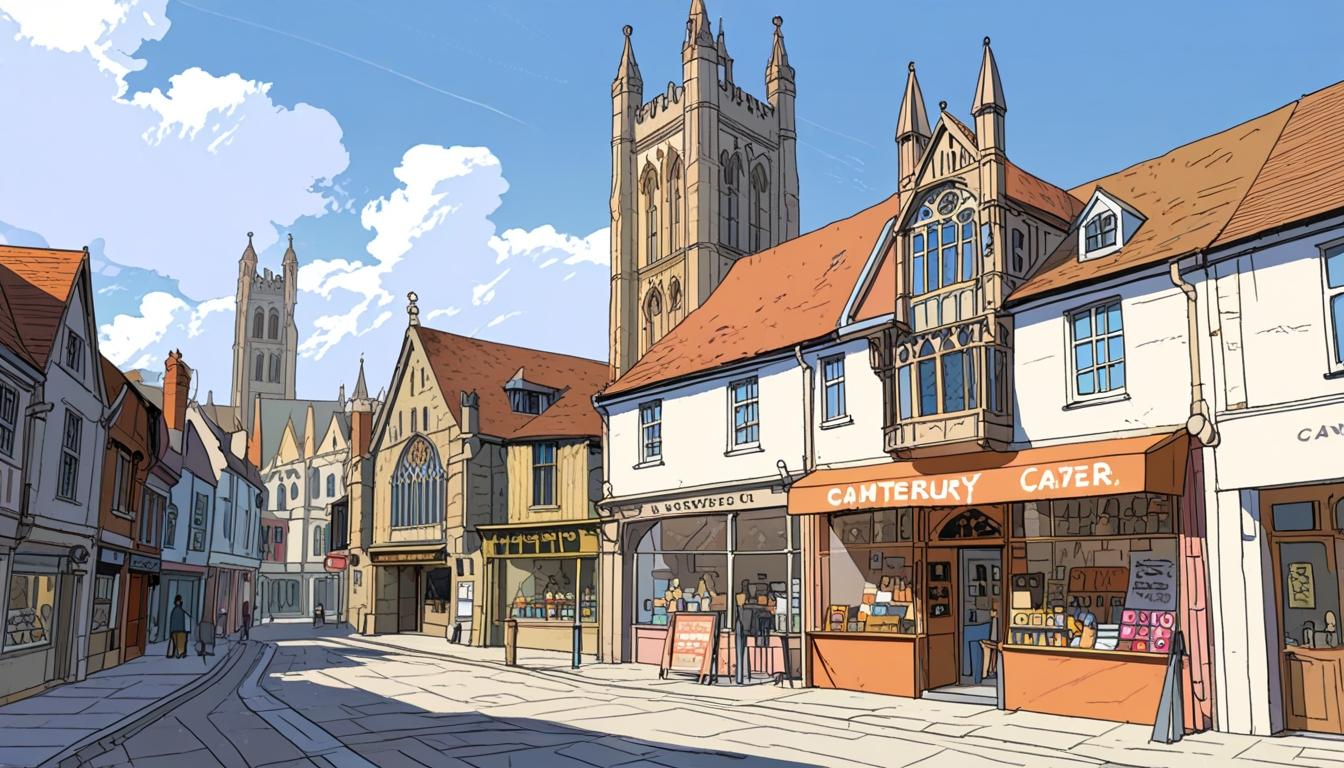In the historic city of Canterbury, known for its rich medieval heritage and the famed Canterbury Cathedral, local residents are expressing concerns over the transformation of their beloved High Street. As the city continues to attract a steady influx of tourists and students from the nearby universities of Kent and Christ Church College, the character of the area appears to be shifting, with many traditional shops being replaced by a variety of new establishments.
During a recent visit reported by the Daily Mail, the High Street was observed to be crowded with numerous US-themed candy stores, vape shops, and fast-food outlets. The presence of at least six phone and vape stores in close proximity caught the attention of locals, reinforcing a growing frustration about the changing landscape of retail in the city.
Roger Moore, an 83-year-old resident, highlighted the rapid change in local commerce, noting, "There are a lot more American shops being introduced to the High Street - like those candy stores - and fast food stores." He lamented the loss of traditional retail, stating, "The old shops seem to have disappeared, and there are a lot of empty shops now." Moore, who remembers a time when access to Canterbury Cathedral was free, expressed his concerns that the rich history of the area is not adequately reflected in the current shopping environment.
The iconic Butter Market square, adjacent to Canterbury Cathedral, now features multiple Harry Potter-themed shops, which have become a focal point for both tourists and residents. A tour guide with 25 years of experience remarked on how the city has "changed entirely," attributing the transformation to increased housing development and a growing number of food shops.
Local residents have also noted the decline of historical establishments with Peter Thompson, a 68-year-old who has lived in Canterbury for 35 years, linking police incidents to the proliferation of vape shops. He stated, "You can see all the fast food shops on this end of town... it doesn't feel as safe as it used to." Thompson expressed dissatisfaction with the movement away from historic businesses in favour of newer establishments, which he feels lack authenticity.
In recent years, the number of traditional banks in the area has also dwindled significantly, with data indicating a decline from nearly 15,000 high street banks in 1986 to less than 6,000 today. Jane Brooker, a local fruit seller, also voiced concerns about the emphasis on vape shops and fast food, stating, "Everyone says, what is a vape shop for? There can't be that amount of vape shops to be able to pay their rent. It's not good for the High Street."
Concerns about transport accessibility were also raised, particularly regarding traffic congestion and pedestrian safety, with local couples expressing frustration about road conditions. Specifications such as access to landmarks and the impact of e-scooters on pedestrian zones were discussed, indicating a concern for both safety and infrastructure.
Amid these changes, local businesses are feeling the pressure. Sandie de Rougemont, owner of the House of Agnes B&B, expressed her frustration over the competitive landscape, particularly with the rise of Airbnbs, which she argues have less regulatory burden than traditional hospitality businesses. "I’m fed up with paying out thousands per annum for endless safety checks, licenses, and business rates whilst the tinpot moneymakers and their cosy Airbnbs don’t have to do anything," she stated.
As the character of Canterbury's High Street continues to evolve, local residents remain split between embracing the changes brought by tourism and expressing concerns over the potential loss of the city's historic charm. The balance between commercial viability and preserving cultural heritage remains a key point of tension for those who call this historic city home.
Source: Noah Wire Services
